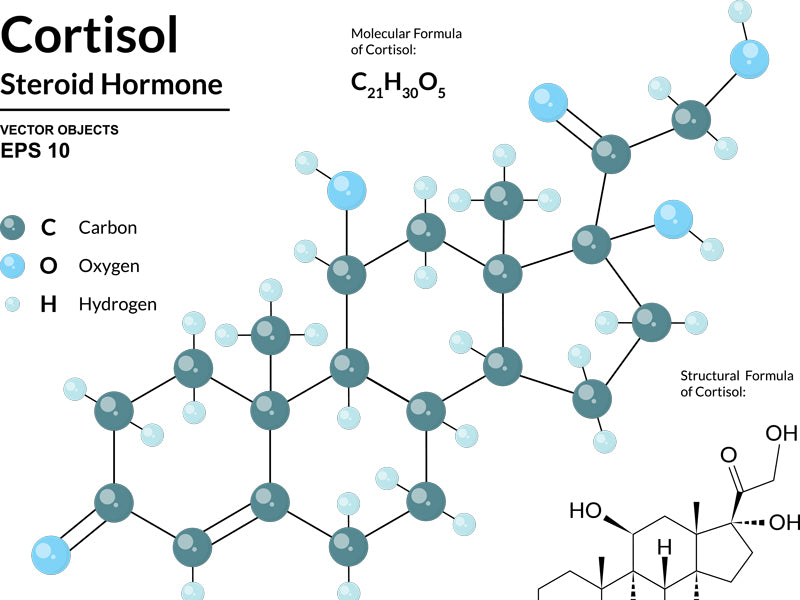
Cortisol is the so-called stress hormone. It mediates the ‘flight or fight response’ with help from the sympathetic nervous system. Cortisol increases alertness and decreases the need for sleep, glucose availability is substantially enhanced. This provides energy for muscles. All available energy is directed towards surviving the coming stressful period. Growth, digestion and other long-term issues are temporarily restricted. Proteins are broken down and converted to glucose (gluconeogenesis). This is what happened in the paleolithic era when humans may have been running from a predator.
Short- and long-term stress have much different effects on the body. The above is an example of short-term stress. The body is well adapted to the short-term increase in cortisol and glucose. With short-term physical stress, insulin and cortisol play opposite roles. The situation is different when you are talking about long-term physical stress.
In modern times, chronic, non-physical stressors increase cortisol. For example, marital issues, problems at work, arguments with children, and sleep deprivation are all serious stressors, but do not result in vigorous physical exertion afterwards to lower blood glucose. Under conditions of chronic stress, glucose levels remain high. There is no vigorous physical exertion to burn off the glucose, and there is no resolution to the stressor. The blood glucose can remain elevated for months. This chronic elevation in glucose can trigger the release of insulin. Chronically elevated cortisol leads to increased insulin. This can then lead to insulin resistance and weight gain. This weight gain tends to occur around the mid-section which can significantly increase your risk for many diseases.
So, what can be done?